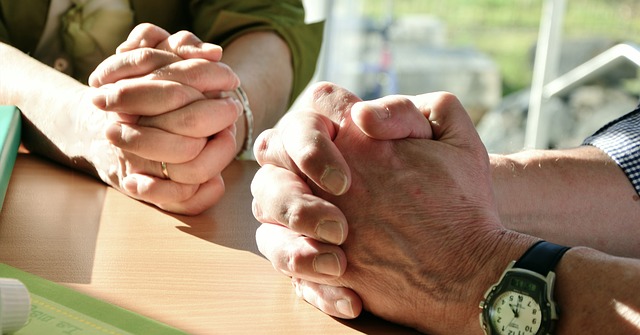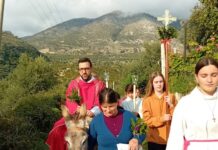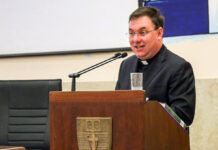Fr. Jose Rafael Prada Ramirez’s article on Crisis: Defeat or Opportunity is a welcome clarification of the meaning of crisis and how we can hope for good social developments as we emerge from lockdowns, with the coronavirus under medical control. As we hear often from the experts, the coronavirus may be with us for a very long time. We will have to adjust to this realization and follow medical advice. In the meantime, many survivors, all over the world, will be grieving the loss of family members and close friends. They may be feeling traumatized having lost their jobs and maybe even their homes. Some of them may have become disillusioned with life and are now full of bitterness. They are not yet ready to look to the future in hope. How can we help them to recover their hope?
Pope Francis, in his interview with Antonio Spadaro SJ, the editor of the Jesuit magazine, gave us a very striking, pastoral image of the Church. He said: “I see clearly that the thing the Church needs most today is the ability to heal wounds and to warm the hearts of the faithful; it needs nearness, proximity. I see the Church as a field hospital after battle. It is useless to ask a seriously injured person if he has high cholesterol and about the level of his blood sugars! You have to heal his wounds. Then we can talk about everything else. Heal the wounds, heal the wounds. And you have to start from the ground up.” (Interview in America, 19 August 2013)
One of the Church’s great gifts for the world is her healing ministry. As Francis says, to exercise this ministry we need “nearness and proximity” to the suffering people. We don’t wait for them to come to us. We seek them out, heal their wounds and continue to offer them our support. Then, as the pope says “we can talk about everything else”. That is the correct, pastoral sequence: first listen, then heal and then talk about everything else. Sadly, the temptation is to talk about everything else and leave the wounds unhealed.
Christian ministers are commissioned to proclaim the God who heals the “broken-hearted and binds up their wounds.” Psalm 147.3. Today we must take seriously the sign that Jesus says will accompany believers: “they will lay their hands on the sick who will recover” Mark 16. 18. This recovery may be physical or spiritual. When people bring their inner wounds and trouble to the priest, deacon or lay minister in the parish, they know that they are not with the psychotherapist but with the representative of Jesus Christ. They may not express in words what they are seeking, but the brother or sister with whom they are sharing their inner wounds should know that they are asking for prayer, asking for healing. The clerical or lay ministers know that they are asking for something that they themselves, by their own power, cannot give them, but Jesus Christ, who has inspired the suffering person to come to his Church, wants to give. After listening to the person’s pain, they can say ‘let us now bring all your suffering to the Lord’. Invariably the person will say yes and enter into silence. The minister is now free to respond with the invocation of the Holy Spirit and present all the suffering and pain that the person has brought to God. With the person’s permission, he or she can lay their hand on the person’s head or shoulder, asking Jesus to heal all the inner wounds that they have suffered, fill the person with hope, take away all resentment and give the person the grace to forgive from the heart those who have inflicted the hurt. The Lord’s peace will descend, and the person will leave with peace in the heart. During this pandemic, while social distancing is still the regulation, the laying on of hands is not essential.
The Eucharist, of course, is the great sacrament of inner healing. Just reflect on the significance of the Offertory during the Mass. Bread and wine are brought to the altar and the priest offers them to God. The bread and wine are the symbol of ourselves. It is ourselves that we are offering to God under the appearance of the bread and wine. Just as Jesus offered himself to the Father on the Cross for our salvation, so at the Offertory of the Mass we are offering to God our whole self, with all the joy and all the sorrow, with all the pain, the suffering and the loss that we have experienced, especially as a result of the coronavirus. Over the bread and wine that represent ourselves the priest imposes his hands and prays: “Make holy, therefore these gifts, we pray, by sending down your Spirit upon them like the dewfall, so that they may become for us the Body and Blood of our Lord Jesus Christ”. The bread and wine that represent us, and everything about us, are transformed by the Holy Spirit into the Body and Blood of the Lord and we are transformed spiritually. This can be the moment of deep, inner healing. But sadly, many faithful Catholics have never received an instruction on the meaning of the offering of the bread and wine and how it is the symbol of the offering they are making of themselves to God. As they are encouraged to offer their whole life, with all its pain, disappointments and disillusionment to God, the Mass becomes for them the greatest healing moment.
St. Paul writes, “Remembering God’s mercy, offer your bodies as a living sacrifice, dedicated and acceptable to God” Romans 12. 1. Pope Benedict commented: “It is our physical existence that must be penetrated by the word and must become a gift to God…The greatness of Christ’s love is revealed precisely in the fact that he takes us up into himself in all our wretchedness, into his living and holy sacrifice, so that we truly become his body”. (Jesus of Nazareth, Vol. 2, p.237) It is our whole physical existence, “all that is within me” as Psalm 103 says, that we offer to God at the Offertory. We offer not just our joys but also our sorrows. That is why the Eucharist is the great sacrament of inner healing.
The sacrament of Reconciliation is the other great sacrament of inner healing. It is not just our own sins that we confess but also the effects on us of the sins of others against us. At the root of many of the sins that trouble people is a wound that has been inflicted on them by the sins of others against them. They are more in need of healing than forgiveness. Their sin was more a re-action in pain than an action in malice. As they bring these inner wounds to the Lord in Confession they will receive the grace to forgive from the heart. And, as they forgive from the heart, they will experience a great liberation of spirit. The sins of others against them will lose all power to wound them because they will be doing what Jesus says, “forgiving seventy times seven”. Matthew 10. 21.
Fr. Jose Rafael Prada Ramirez’s enlightening article on Crisis: Defeat or Opportunity in Scala gives us confidence to look to the future with hope. As he said, ”Crisis, then, becomes an opportunity for hope, for a new life, for renewing paths that bear better fruit”. In the meantime, the Redemptorist will be pastorally engaged in the “field hospital”, ministering the healing love of Christ to those who have suffered great loss and have been traumatized by the pandemic. They will need that healing before they can look to the future with hope.
Fr. Jim McManus C.Ss.R.
(bold text by editor of Scala News)







